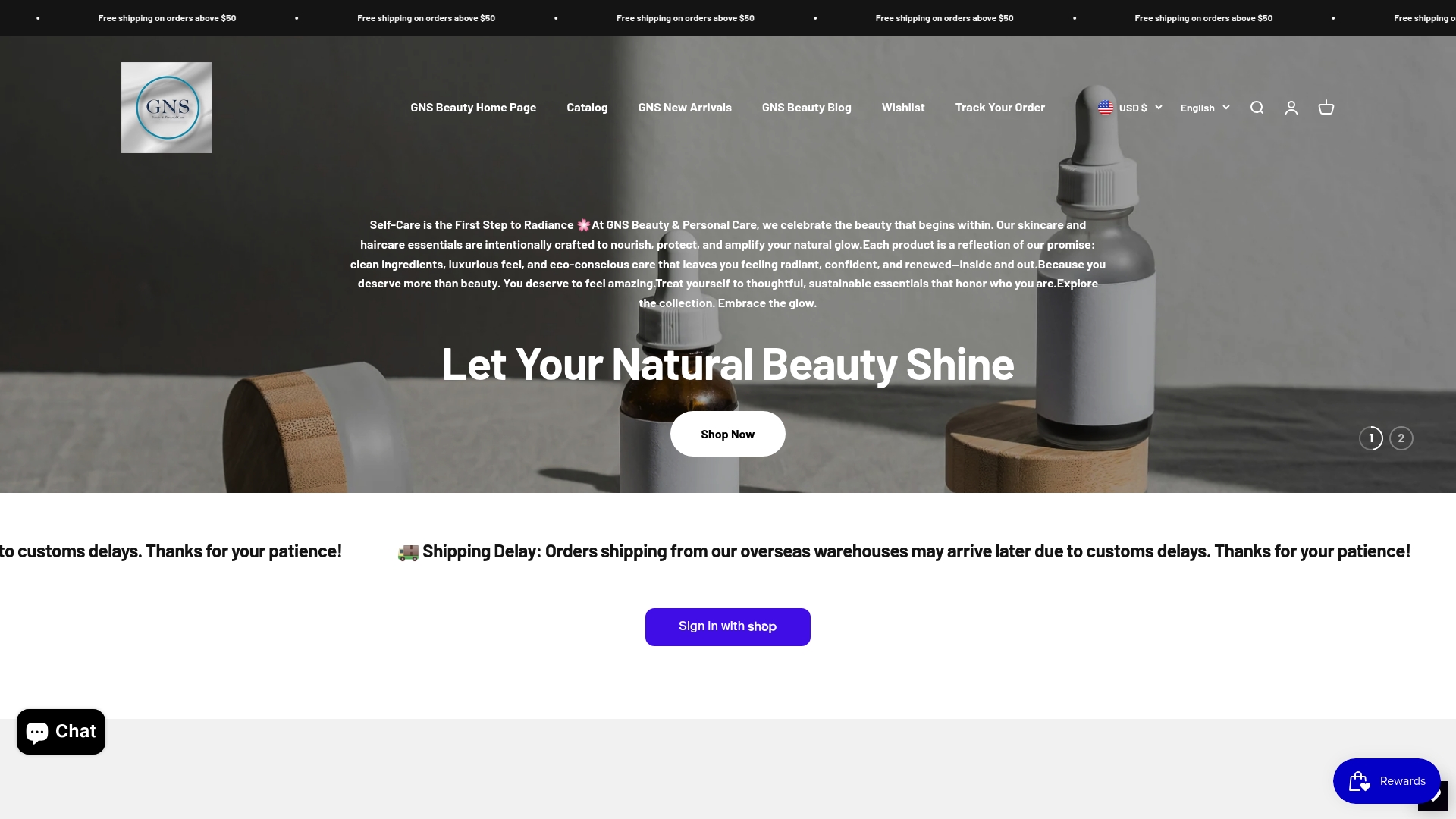Hyaluronic acid has taken the skincare world by storm. People are obsessed with products that promise dewy, plump skin thanks to this ingredient. But the real surprise is that one gram of hyaluronic acid can hold up to six liters of water which blows every other moisturizer out of the water. Most people are missing how this tiny molecule becomes a lifeline for sensitive skin—not just for hydration but for real protection and calm.
Table of Contents
- What Is Hyaluronic Acid And Its Role In Skincare?
- Why Hyaluronic Acid Matters For Sensitive Skin Types
- How Hyaluronic Acid Works: Mechanisms Of Hydration
- Key Benefits Of Hyaluronic Acid For Sensitive Skin
- Real-World Applications: Choosing The Right Products
Quick Summary
| Takeaway | Explanation |
|---|---|
| Hyaluronic acid retains moisture effectively | It can hold up to six liters of water per gram, promoting optimal hydration. |
| Ideal for sensitive skin types | Hyaluronic acid hydrates without causing irritation or inflammation. |
| Supports skin barrier function | It reinforces the natural protective layer of the skin against environmental stressors. |
| Choose products with the right molecular weight | Low and high molecular weights serve different hydration needs, ensuring comprehensive benefits. |
| Patch test new products | Always test for reactions before full application to protect sensitive skin. |
What is Hyaluronic Acid and Its Role in Skincare?
Hyaluronic acid (HA) represents a groundbreaking ingredient in modern skincare, offering exceptional moisture retention and skin rejuvenation capabilities. As a naturally occurring molecule found within human connective tissues, this powerful substance plays a critical role in maintaining skin hydration, elasticity, and overall health.
The Molecular Magic of Hyaluronic Acid
At its core, hyaluronic acid is a glycosaminoglycan with remarkable water-binding properties. According to scientific research from the National Institutes of Health, a single gram of hyaluronic acid can hold up to six liters of water, making it an extraordinary hydration powerhouse. This unique characteristic allows it to create a protective barrier on the skin, preventing moisture loss and supporting the skin’s natural protective mechanisms.
How Hyaluronic Acid Benefits Sensitive Skin
For individuals with sensitive skin, hyaluronic acid offers several transformative advantages:
- Intense Hydration: Provides deep moisture without triggering irritation
- Lightweight Texture: Absorbs quickly without feeling heavy or greasy
- Barrier Reinforcement: Supports the skin’s natural protective layer
The molecular structure of hyaluronic acid enables it to penetrate multiple skin layers, delivering hydration where it is most needed. Unlike some skincare ingredients that can cause inflammation, hyaluronic acid works harmoniously with sensitive skin types, helping to calm and restore natural balance.
By attracting and retaining moisture, hyaluronic acid helps plump skin cells, reducing the appearance of fine lines and creating a smoother, more radiant complexion. Its gentle nature makes it an ideal ingredient for those struggling with skin sensitivity, redness, or unpredictable reactive responses.
Why Hyaluronic Acid Matters for Sensitive Skin Types
Sensitive skin requires specialized care that goes beyond traditional moisturizing approaches. Hyaluronic acid emerges as a transformative solution, addressing the unique challenges faced by individuals with reactive and easily irritated skin types.
Understanding Skin Sensitivity and Moisture Dynamics
Sensitive skin fundamentally struggles with maintaining proper hydration and protecting its natural barrier. According to dermatological research from the Journal of Clinical and Aesthetic Dermatology, skin sensitivity often correlates directly with compromised moisture retention and weakened protective mechanisms. Hyaluronic acid provides a gentle yet powerful intervention that supports skin health without triggering inflammatory responses.
Key Benefits for Sensitive Skin Preservation
For individuals navigating the complexities of sensitive skin, hyaluronic acid offers multiple critical advantages:
- Minimal Irritation: Naturally occurring molecule with zero harsh chemical interactions
- Deep Hydration: Penetrates multiple skin layers without causing stress
- Protective Barrier Enhancement: Strengthens skin’s natural defense mechanisms
The molecular structure of hyaluronic acid allows it to interact seamlessly with sensitive skin. Unlike aggressive skincare ingredients that can trigger redness, inflammation, or allergic reactions, this remarkable compound works harmoniously with the skin’s natural biology.
Moreover, hyaluronic acid’s exceptional water-binding capabilities mean that sensitive skin receives sustained moisture without overwhelming its delicate systems. This controlled hydration helps reduce potential triggers like dryness, flakiness, and potential breakouts that often accompany skin sensitivity. By supporting the skin’s inherent regenerative processes, hyaluronic acid transforms sensitive skin care from reactive management to proactive protection.
To help clarify how hyaluronic acid addresses sensitive skin needs compared to traditional moisturizers, the following table contrasts key characteristics and benefits of each approach.
| Feature | Hyaluronic Acid | Traditional Moisturizer |
|---|---|---|
| Moisture Retention | Binds up to 6 liters of water per gram | Retains limited moisture |
| Skin Barrier Support | Reinforces natural protective barrier | May form a superficial film |
| Risk of Irritation | Low; gentle for sensitive skin | Varies; can clog pores or cause flare |
| Penetration Depth | Multiple skin layers (surface & deeper) | Usually remains on the surface |
| Texture | Lightweight, non-greasy | Can be heavy or greasy |
| Hydration Duration | Sustained, long-lasting | May be short-term |
| Key Advantage | Adaptable, minimal irritation | Immediate but less targeted hydration |

How Hyaluronic Acid Works: Mechanisms of Hydration
Hyaluronic acid represents a sophisticated molecular mechanism for skin hydration, operating through intricate interactions that go far beyond simple moisture application. Its unique ability to attract, retain, and distribute water makes it a critical component in maintaining skin health and resilience.
The Molecular Water Attraction Process
At the cellular level, hyaluronic acid functions as an extraordinary water magnet. Scientific research published in the International Journal of Molecular Sciences reveals that hyaluronic acid can bind up to 1,000 times its molecular weight in water, creating an unparalleled hydration reservoir within the skin’s layers.
Multilayered Hydration Strategies
Hyaluronic acid operates through multiple hydration strategies that ensure comprehensive moisture distribution:
- Surface Level Hydration: Creates an immediate moisture barrier
- Intermediate Layer Penetration: Attracts water into deeper skin structures
- Cellular Level Support: Maintains optimal cellular water content
The complex mechanism involves attracting environmental moisture and drawing water from deeper dermal layers to the skin’s surface. This process ensures that hydration is not just temporary but sustained, supporting the skin’s natural regenerative processes.
Unlike traditional moisturizers that sit on the skin’s surface, hyaluronic acid penetrates multiple layers, delivering water precisely where it is most needed. Its molecular structure allows for gradual, controlled moisture release, preventing the overwhelming or clogging of skin pores that can occur with heavier hydrating agents. By maintaining optimal water balance, hyaluronic acid supports skin elasticity, reduces the appearance of fine lines, and helps create a plump, youthful complexion.
Key Benefits of Hyaluronic Acid for Sensitive Skin
Sensitive skin demands a nuanced approach to hydration and care, making hyaluronic acid an exceptional solution for addressing multiple dermatological challenges. Its sophisticated molecular properties offer targeted benefits that go beyond conventional skincare strategies.
Healing and Protective Mechanisms
For individuals with sensitive skin, hyaluronic acid provides remarkable healing capabilities. Research from the National Institutes of Health demonstrates its ability to promote wound healing and reduce inflammation, making it an ideal ingredient for skin prone to irritation and reactive responses. The compound works by supporting the skin’s natural regenerative processes without introducing additional stress.
Comprehensive Skin Health Advantages
Hyaluronic acid delivers multiple critical benefits for sensitive skin types:
- Inflammation Reduction: Calms and soothes reactive skin conditions
- Barrier Restoration: Supports natural protective mechanisms
- Gentle Hydration: Provides moisture without overwhelming skin systems
The molecular structure of hyaluronic acid allows it to interact harmoniously with delicate skin tissues. By creating a protective yet breathable barrier, it helps shield against environmental stressors while simultaneously supporting the skin’s intrinsic healing processes. Explore our guide on ingredients for clear skin to understand how targeted ingredients can transform skincare routines.
Unique to hyaluronic acid is its ability to adapt to different skin environments. It can adjust its moisture-binding capacity based on humidity levels and individual skin needs, ensuring that sensitive skin receives precisely the right amount of hydration without risking over-saturation or potential irritation. This adaptive quality makes it an exceptional choice for those struggling with unpredictable skin responses and complex hydration requirements.
Real-World Applications: Choosing the Right Products
Selecting hyaluronic acid products requires a strategic approach that considers individual skin characteristics, product formulation, and specific hydration needs. Understanding the nuanced landscape of skincare ingredients empowers consumers to make informed decisions that support their unique skin health goals.
Understanding Hyaluronic Acid Molecular Weights
Dermatological research from the Journal of Cosmetic Dermatology reveals that hyaluronic acid exists in multiple molecular weights, each performing distinct functions within skin layers. Low molecular weight hyaluronic acid penetrates deeper into the skin, while high molecular weight variants create a protective surface barrier, offering comprehensive hydration strategies.

Critical Product Selection Criteria
When evaluating hyaluronic acid products for sensitive skin, consider these essential factors:
- Concentration Levels: Optimal range between 0.1% to 2% for balanced hydration
- Additional Ingredients: Seek complementary soothing components like ceramides
- Product Formulation: Prioritize lightweight, non-comedogenic textures
Sensitive skin requires a nuanced approach to product selection. Patch testing remains crucial, allowing individuals to assess potential reactions before full application. Learn more about maintaining clear, healthy skin through targeted ingredient understanding.
Beyond molecular composition, product compatibility with individual skin microbiomes determines ultimate effectiveness. Hyaluronic acid works most effectively when integrated into a holistic skincare routine that respects the skin’s natural balance, avoiding overwhelming or conflicting ingredient interactions. The goal is not just hydration, but harmonious skin restoration and protection.
To guide your product choices and maximize sensitive skin benefits, this table summarizes how hyaluronic acid molecular weights impact hydration and which product features to prioritize.
| Hyaluronic Acid Type | Penetration Depth | Main Benefit | Key Product Selection Criteria |
|---|---|---|---|
| High Molecular Weight (HMW) | Surface layer | Forms protective moisture barrier | Lightweight, non-comedogenic formulations |
| Low Molecular Weight (LMW) | Deeper skin layers | Deep hydration, enhances plumpness | 0.1%-2% concentration, additional ceramides |
| Multi-Weight Formulations | Both surface & deep | Comprehensive, multilayered hydration | Patch test, complementary soothing ingredients |
Discover the Secret to Calm, Hydrated Skin at GNS Beauty
Are you struggling with sensitive skin that often feels tight, irritated, or dry? The article explained the importance of using proven ingredients like hyaluronic acid to restore your skin’s moisture balance, prevent redness, and reinforce its natural barrier. Finding effective yet gentle solutions can be overwhelming, especially when your skin reacts to so many products. At GNS Beauty & Personal Care, we curate premium self-care essentials designed for people just like you—products that harness the soothing benefits of hyaluronic acid and other skin-friendly formulas to help you achieve a calm, hydrated, and radiant complexion.

Stop letting sensitivity limit your skincare options. Explore our handpicked collection of eco-conscious and luxury beauty essentials at GNS Beauty & Personal Care and boost your routine with ingredients trusted by experts. Your best skin starts today—browse the latest arrivals and learn more about the transformative power of science-backed skincare in our ingredient spotlight. Shop now and feel the difference.
Frequently Asked Questions
How does hyaluronic acid benefit sensitive skin?
Hyaluronic acid offers deep hydration, which is essential for sensitive skin that struggles to retain moisture. Incorporate it into your routine to improve hydration levels and reduce the appearance of redness and irritation within a few weeks.
What should I look for in hyaluronic acid products for sensitive skin?
When choosing products, look for a concentration of 0.1% to 2%, along with additional soothing ingredients like ceramides. Always prioritize lightweight, non-comedogenic textures to avoid clogging pores.
How do I introduce hyaluronic acid into my skincare routine?
Start by patch testing any new hyaluronic acid product on a small area of your skin to observe for any reactions. Gradually incorporate it into your routine, using it once daily and increasing usage as tolerated.
Can hyaluronic acid help with skin redness and irritation?
Yes, hyaluronic acid has anti-inflammatory properties that can soothe reactive skin and reduce redness. Aim to use hyaluronic acid consistently to help calm your skin and support its natural healing process over time.
Is hyaluronic acid safe for all skin types, especially sensitive skin?
Hyaluronic acid is safe and beneficial for all skin types, particularly sensitive skin, as it is a naturally occurring molecule with low risk of irritation. Use it daily to enhance your skin’s hydration and resilience without overwhelming its delicate systems.








Hinterlasse einen Kommentar
Alle Kommentare werden vor der Veröffentlichung geprüft.
Diese Website ist durch hCaptcha geschützt und es gelten die allgemeinen Geschäftsbedingungen und Datenschutzbestimmungen von hCaptcha.